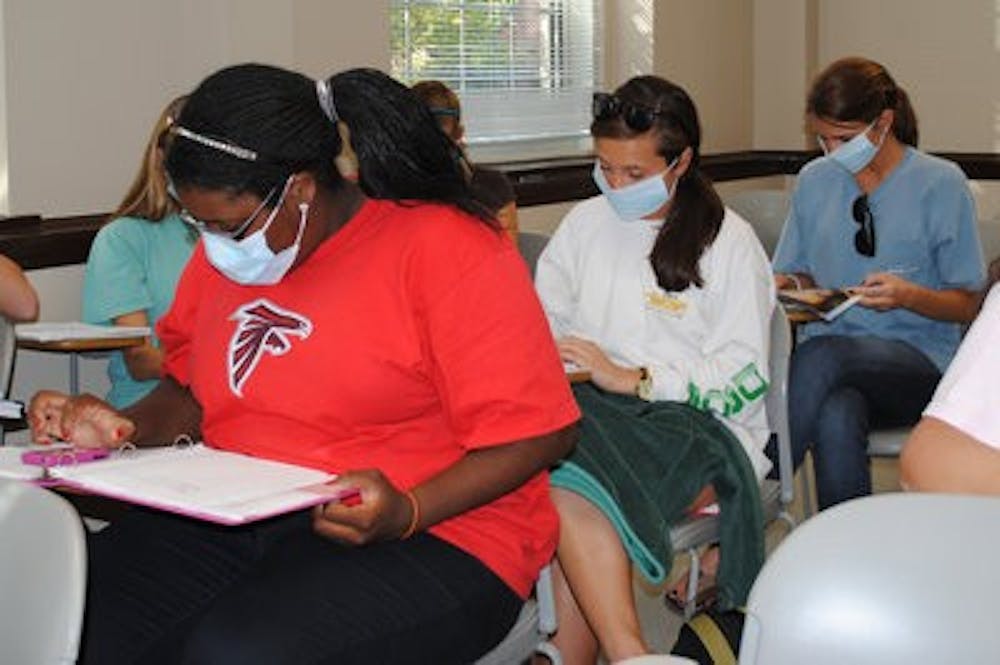Cooties aren't just for kindergartners.
Be careful who you kiss--you might contract mononucleosis.
The Epstein-Barr virus causes mono, and according to the Centers for Disease Control and Prevention, it is the one of the most common of human viruses in the world.
"The transmission of the virus requires intimate contact with the saliva of an infected person," according to the CDC.
Kissing is not the only form by which the virus is transmitted.
It often spreads easily through common objects, like door handles, keyboards or handrails.
"Mono can be transmitted through coughing or sneezing into your hand and then shaking or holding hands with another person," said Teresa Gore, assistant clinical nursing professor.
The illness spreads in close quarters, like dorms, or other high-traffic areas such as libraries.
Sharing utensils or drinking after someone transmits the virus as well.
"I've had mono twice--both times I drank after a friend and contracted the virus," said Kathryn Weiland, freshman in international business. "You would have thought I would have learned my lesson the first time. And both experiences were awful."
This is a rare experience, since most adults build an immunity to mono after the first exposure and rarely contract it again.
The CDC estimates 95 percent of adults in the United States have been infected with the Epstein-Barr virus at some point in their lives.
It can take four to six weeks for symptoms to appear, and the symptoms usually resolve in one to two months, according to the CDC.
Symptoms of mono include swollen lymph glands, sore throat, headache, loss of appetite, weakness, fatigue and fever, according to the Mayo Clinic.
"If rest and a healthy diet don't ease your symptoms within a week or two or if your symptoms recur, see your doctor," advises the Mayo Clinic.
If doctors suspect mono, they may conduct simple blood work like a mono spot test to check antibodies or a white blood cell count to confirm a diagnosis.
The virus is extremely difficult to prevent, according to the CDC.
However, prevention is the key to avoiding mono.
Like most illnesses, practicing good hygiene is helpful, as well as avoiding drinking after friends, sharing utensils or, of course, kissing someone suspected of having mono.
Cleaning dorms or apartments frequently can also limit vulnerability to the illness.
"There is no cure," Gore said. "Rest is the most important step someone can take to recover."
Gore said doctors will often prescribe antibiotics to relieve other symptoms associated with mono.
If you do suspect you have mono, visit a doctor immediately and avoid prolonged, personal contact with others.
Do you like this story? The Plainsman doesn't accept money from tuition or student fees, and we don't charge a subscription fee. But you can donate to support The Plainsman.




